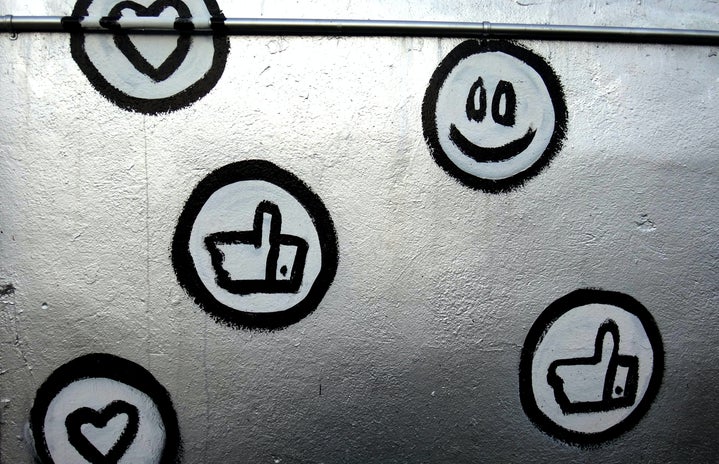Today is World Cancer Day, which aims to raise awareness of not only what you can do to help cancer research, but also of the things that could increase your chances of cancer, and how to tell if you’re at risk.
Though this disease has claimed so many close to us and so many who inspire people across the globe, the fight is stronger than ever. The internet rallies to raise money for cancer research, and there’s no better time to get involved, start your own campaigns and put up a fight.
Of all the stars who died last year, here are the ones who died of cancer – it’s a long, depressing list, but shows just how much this disease impacts people around the world:
- Singer David Bowie, 69, died on January 10
- Actor Alan Rickman, 69, died on January 14
- Sir Terry Wogan, 77, died on January 31
- Magician Paul Daniels, 77, died on March 17
- Comedian and actress Caroline Aherne, 52, died on July 2
- Ken Barrie, 83, the voice of Postman Pat, died on July 29
- The Man From U.N.C.L.E star Robert Vaughn, 83, died on November 11
The good news is that there are plenty of organisations out there doing their best to find cures – and they’re making progress every day. You’ve probably seen campaigns like the ones that aired before Deadpool (prostate cancer here, and breast cancer here), which help people understand the basics of how to tll if you need to go to the doctors to get a diagnosis – an early diagnosis can mean the world, and speaking as someone who’s had family come far too close to a late trip to the doctors, it’s best to be on the ball.
The Royal Society have been spreading world-class experimental research via Twitter:
We’ve got to give it to the amazing workers at the NHS who tirelessly help millions each year fight such an awful disease:
WHO’s tweet thread educates people on ways to reduce your cancer risk, the stats of how many people it has impacted and stresses the need to lead a healthy life:
UN Women shared this brilliant piece on the progress which still needs to be made in Nigeria with regards to treatment:
Scientific American are looking at the progress made in cancer treatment – it’s not all bad news!
Macmillan have shared tips on how to make a difference to people with cancer for those who are fighting this disease too close to home:
So many organisations have come together to educate people on cancer, and they’ve even produced their own Unity Bands as a way of raising funds and showing support. Read more here.
In Cornwall, many women are putting themselves at risk of cervical cancer due to not taking up the offer of a free smear test, which is a massive issue – around 3,000 women in the U.K. are diagnosed with the disease each year. Cervical cancer is extremely difficult to diagnose in its early stages as there are no easy symptoms to identify, so these tests are usually the only thing that can lead to an early enough diagnosis. I cannot stress how crucial they are, and as somebody who has cervical cancer in the family, I’m so thankful that these tests are offered – no matter how uncomfortable or awkward they may be!
Figures released this year suggest nearly a third of women within the risk age group in Cornwall ignore the reminders to get a smear test, with 25-29 year olds having a markedly lower rate of getting these tests than elligible women of all ages. Julie Yates – a consultant in public health and screening and immunisation in the South West – said of the decline:
“We have noticed a fall in attendance of younger women over the past few years, and this decline in attendance for screening is now linked to showing a rise in the incidence of cervical cancer in women under 35,” she said. “It is really important for young women to understand the importance of attending cervical screening when they receive a letter from their GP as it can detect pre-cancer abnormalities, which, if left untreated, may develop into cancer.
“Screening is a way of picking up these early problems in women who don’t have any other symptoms and would not otherwise know there was an abnormality, as a preventative measure.
“The screening test is relatively simple, takes about five minutes and is performed by the practice nurse at your GP surgery. Ninety-five per cent of results will be normal and, of those that are not, the vast majority can be treated very easily and will never develop in to cancer.”
The charity Jo’s Cervical Cancer Trust conducted research which revealed that embarrassment is one of the number one reasons of women not attending smear tests, with over a quarter of women saying they felt embarassed to go to a test, and over 70% saying they didn’t feel the tests helped with diagnosis. Over 220,000 of 25 to 29 year-olds invited to a smear test in England last year didn’t attend – that’s a huge problem, and one that will only get better with education and support so people know the tests work, and feel comfortable enough to attend them.
Read more about this issue on the BBC here.
There are still plenty of campaigns out there that need attention, and I urge you to support the amazing work of scientists, carers, policymakers and charities across the world in helping people fight this awful disease.
Whether you want to run 5 miles, cut your hair, bake some cakes or paint to raise money, or if you just want to raise awareness via social media or donate to various campaigns, find the charities that mean the most to you and get to work!

